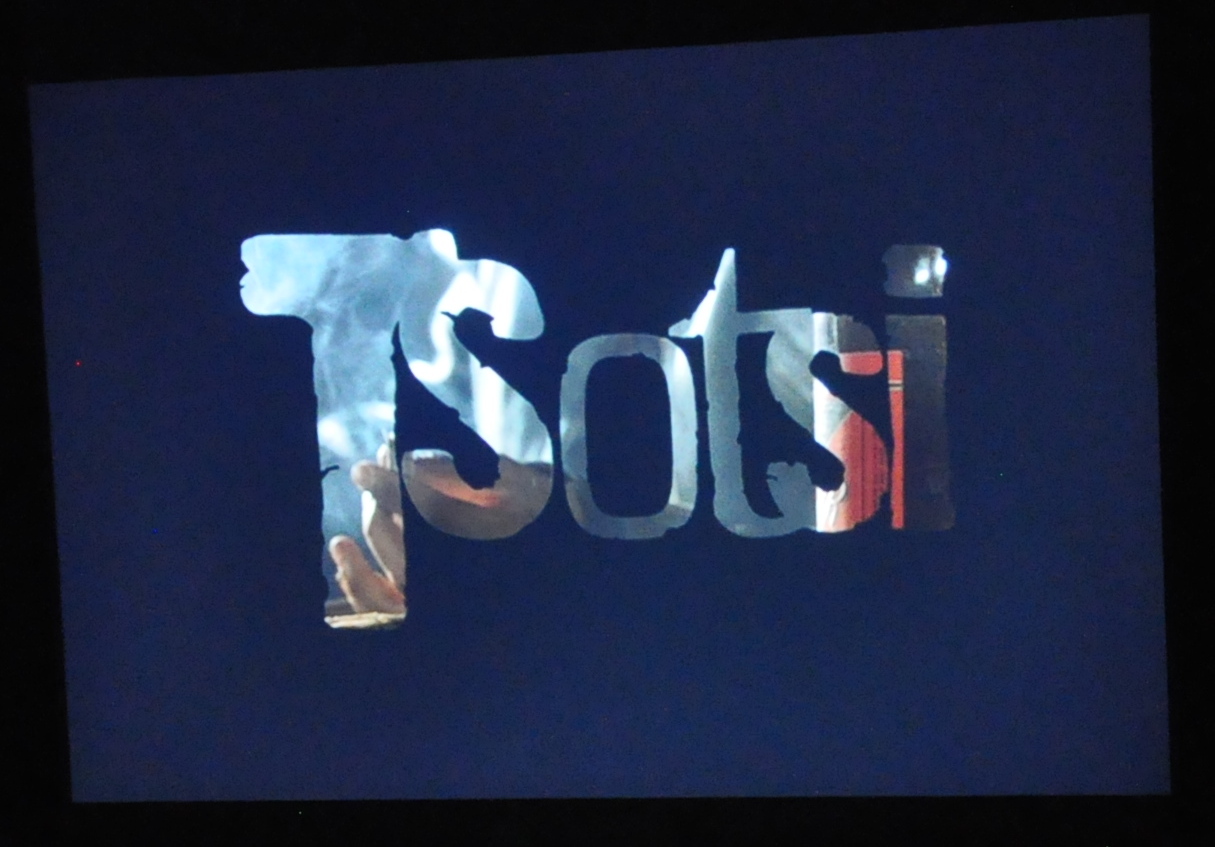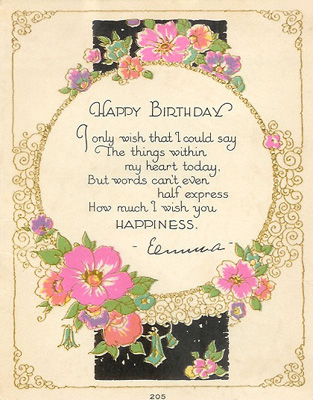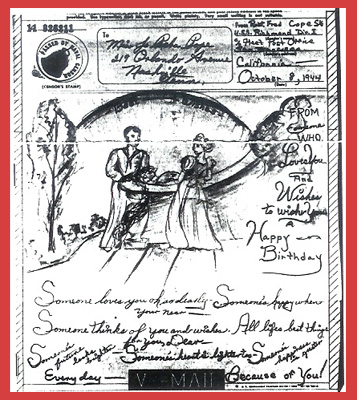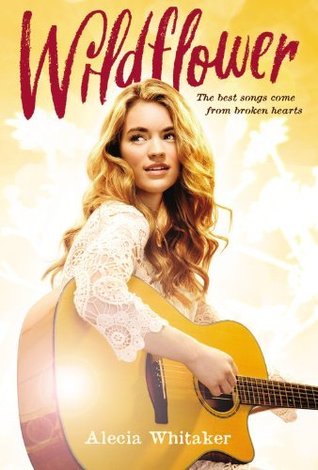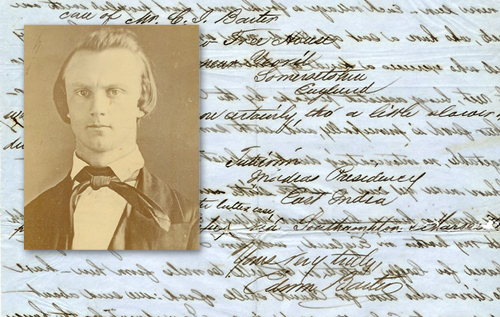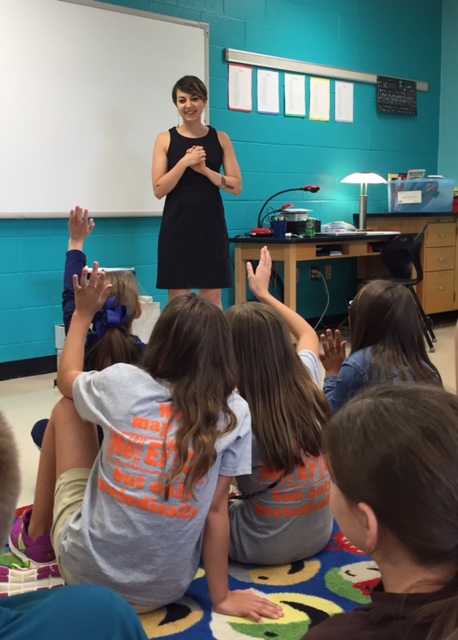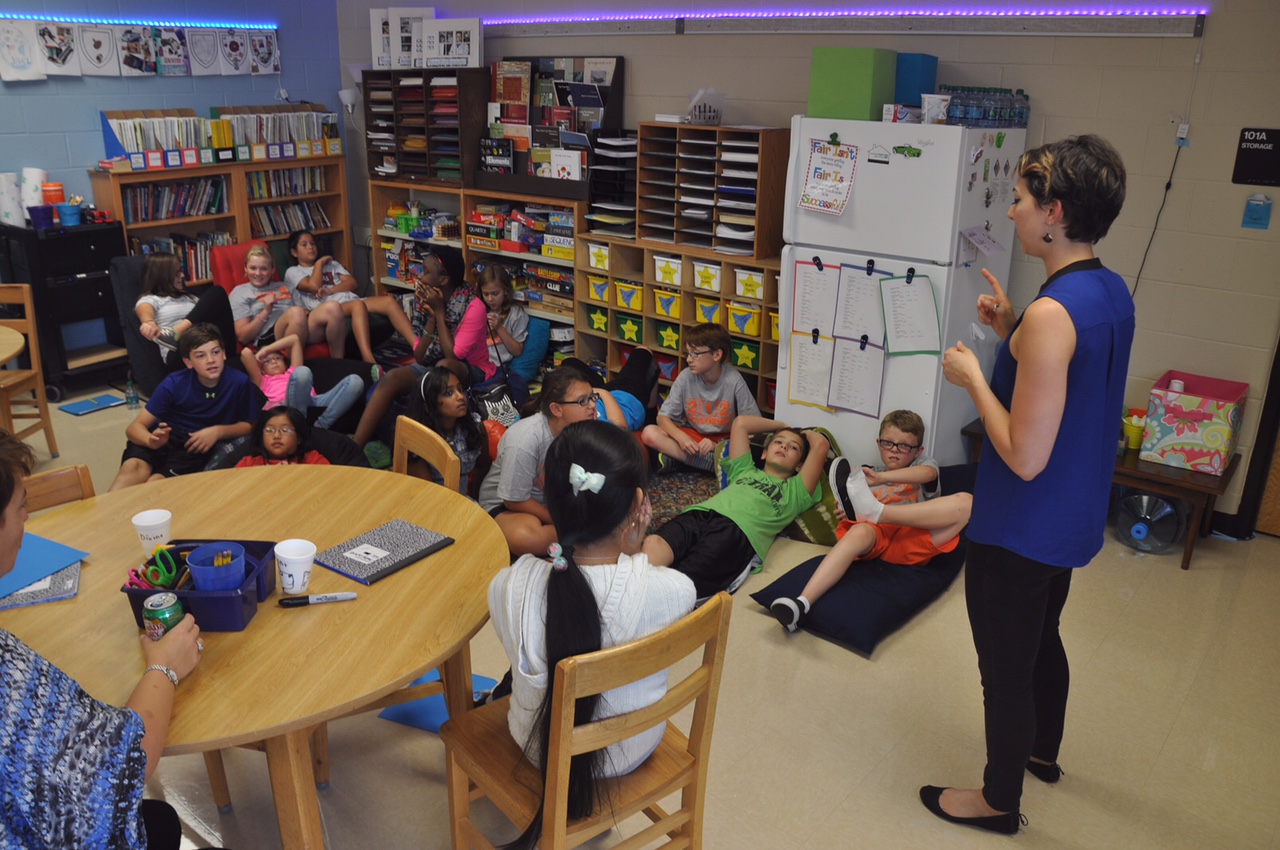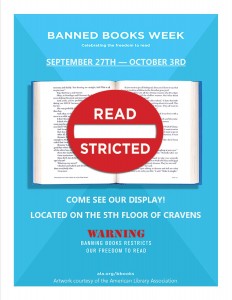
Event Flyer
WKU Libraries celebrates Banned Books Week between September 27 – October 3 to support the efforts of librarians in promoting intellectual freedom and combating censorship. To mark this week there are Banned Books Week displays on the 5th floor of Cravens library and at the Educational Resources Center (ERC) in Gary Ransdell Hall. All books in the displays are available to be checked out!
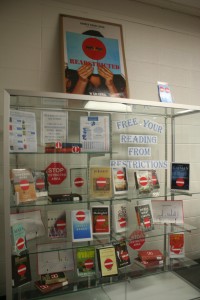
Cravens Library 5th Floor Display

5th Floor Cravens Display
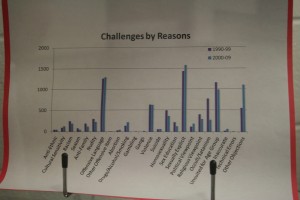
Reasons for Book Challenges

ERC Display
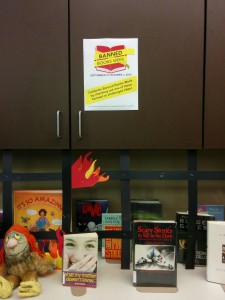
ERC Display

Students at the ERC Banned Books Week Display
The American Library Association maintains a list of the titles and reasons for frequently challenged books.
Below is an excerpt of an article published this week in American Libraries about Banned Books Week and the continued importance of fighting censorship for the freedom to read.
http://americanlibrariesmagazine.org/blogs/the-scoop/banned-books-week-roundup-2015/
“Banned Books Week Roundup 2015: Recently banned and challenged books in US libraries and elsewhere
George M. Eberhart | September 29, 2015
As Banned Books Weekis celebrated September 27–October 3, it’s helpful to remember that there is still a need for vigilance to ensure the freedom to read. In 2015, books are still challenged (when an individual or group requests the removal or restriction of materials from a library or curriculum) and banned (when materials are removed outright from circulation), not only in the United States but in other countries as well.
Kristin Pekoll, assistant director of the American Library Association’s Office for Intellectual Freedom, says that librarians and teachers often feel frustrated by these efforts to restrict the scope of reading. “More and more, they are reaching out to our office for support because they’re feeling silenced by their administrations,” she says. “While the fear of losing their jobs is real, more often librarians tell me about professional retaliation in the form of book budget cuts or bad evaluations. The theory is that if their lives are made miserable enough, they’ll quit, and the books will be censored because no one is there to defend them.”
Here is a roundup of recent instances of book challenges in US school libraries, as well as one public and one academic library:
- In February, parent Catrenna Lopez initiated a challenge to Gilbert Hernandez’s graphic novelPalomar after her son checked the book out from the Rio Rancho (N.Mex.) High School library, saying the content included “sexual graphics, prostitution, child pornography, child abuse, explicit sexual scenes, nudity.” A review committee met on March 16 and decided by a 5–3 vote that Palomarshould not be removed, but students under 18 would need a parent’s permission before it can be checked out. However, school librarian Brenda McCandless had independently made the decision to remove the book from the system in violation of school policy. (KOAT-TV, Albuquerque, July 7; KUNM-FM, Albuquerque, July 14.)
- In mid-September, Hamilton Boone, the parent of a teen at Satellite High School in Satellite Beach, Florida, wanted Toni Morrison’s novel Beloved pulled from the Advanced Placement summer reading list because of what he called its “porn content.” However, after he admitted that he had not actually read the entire book, the school’s challenge committee unanimously voted to keep it on the reading list. (Melbourne Florida Today, Sept. 11.)
- Two books, The Librarian of Basra and Nasreen’s Secret School, both by Jeanette Winter, werechallenged in the Duval County (Fla.) School District in July on the grounds that they “promote the Koran and praying to Muhammad,” according to Dianne Haines Roberts, grandparent of a student. She wanted the books removed from the 3rd grade curriculum. However, as the National Coalition Against Censorship pointed out in a July 30 letter to School Superintendent Nikolai P. Vitti, “Arguments that the books promote Islam are misguided: Learning about life in an Islamic culture is no more promoting Islam than learning about a Christian character is promoting Christianity.” The school decided to allow parents to opt their children out of reading the books. (WJCT-TV, Jacksonville, Fla., July 13.)
- Allen Burch, principal of Lincoln High School in Tallahassee, Florida, pulled Mark Haddon’s The Curious Incident of the Dog in the Night-Time from the summer reading program in August after he received a few dozen complaints from parents about the book’s “profanity and atheism.” According to school policy, challenged books must go through a school review process, but Burch claimed this did not apply to summer reading lists. The Leon County School Board stood by Burch’s decision, but high school student Jaclyn Weinell wrote an op-ed piece for the Tallahassee newspaper that said the school ban was an attack on free thought and praised the book: “Student readers are encouraged to think—about autism, about family, about atheism, and about science—and see the world through the eyes of a 15-year-old narrator with a rather unique viewpoint.” (Tallahassee [Fla.] Democrat, Aug. 13, 24.)
- In early September, Jackie Sims, the mother of a 15-year-old boy at Knox County (Tenn.) Schools’L&N STEM Academy, had objected to Rebecca Skloot’s The Immortal Life of Henrietta Lacks when he brought it home as part of his summer reading, calling it “pornographic.” The school fully supported keeping the book, which details the true story of an African-American woman who in 1951 had a sample of her cells taken for research without her knowledge or consent, but Sims seemed determined to challenge the book at the district level. Skloot herself weighed in, saying that Sims had “confused gynecology with pornography” and that her objection was based on a passage that describes Henrietta Lacks’s infidelity and another that discusses her intimate discovery that she had a lump on her cervix. (WBIR-TV, Knoxville, Tenn., Sept. 9.)
- Lee Runyon, principal of West Ashley High School in Charleston, South Carolina, pulled Courtney Summers’s Some Girls Are from a freshmen Honors English summer reading list in late July after aparent complained that the novel’s explicit content describing underage alcohol and drug use, sexual assault, and body image were age-inappropriate. Runyon replaced the book with Laurie Halse Anderson’s Speak on the reading list, but did so without giving the school board a chance to review the challenge. Former YA librarian Kelly Jensen responded by collecting 830 donated copies of Some Girls Are and giving them away to teens in the area, with the help of the Charleston County Public Library. (Charleston Post and Courier, July 28; Book Riot, Sept. 4.)
- In May, A. C. Reynolds High School in Asheville, North Carolina, temporarily suspended the use of Khaled Hosseini’s bestselling The Kite Runner in an Honors English class following a complaint from former school board member and parent Lisa Baldwin, who objected to “homosexuality and sexually explicit scenes.” The book was pulled from classrooms, pending review by two committees that finally recommended keeping it. In September, the Buncombe County School Board added a policy allowing teachers to continue using materials that have been challenged until a final decision is made. (Asheville Citizen-Times, May 4, Sept. 3.)
- After a local Tea Party chapter circulated petitions to have two LGBT-themed books removed from the children’s section of the Hood County Library in Granbury, Texas, religious conservatives spoke at a July 14 meeting of the county commissioners and said their objections to This Day in June and My Princess Boy were based on their Christian faith. In the end, the commissioners agreed with the library board and recommended the books stay in the children’s collection. (The Raw Story, July 15.)
- Tara Shultz, a 20-year-old student at Crafton Hills College in Yucaipa, California, and her parents in June attempted to have the school put a disclaimer on the syllabus of Associate Professor Ryan Bartlett’s English 250 fiction course because four of the graphic novels that he uses as course materials contain “lesbian oral sex, suicide, homosexuality, pedophilia . . . murder, torture.” The novels werePersepolis by Marjane Satrapi, Fun Home by Alison Bechdel, Y: The Last Man Vol. 1 by Brian K. Vaughan and Pia Guerra, and The Sandman Vol. 2: The Doll’s House by Neil Gaiman and various artists. Initially, College President Cheryl Marshall agreed to the disclaimer, but later backpedaled and decided to leave the decision up to individual instructors. (Redlands [Calif.] Daily Facts, June 15;Riverside [Calif.] Press-Enterprise, July 2.)
Two notable instances of book-banning occurred this year in Italy and New Zealand:
- One of the first official acts of the new mayor of Venice, Italy, Luigi Brugnaro, who took office June 15, was to pull nearly 50 children’s books on LGBT topics from libraries in the city’s preschools. Protests immediately erupted from residents, publishers, librarians, and 250 authors, who wrote to the mayor asking to have their own books removed in solidarity with the banned authors. Brugnaro soon reversed course and whittled the titles down to two—Ophélie Texier’s Jean a deux mamans(Jean Has Two Mothers) and Francesca Pardi’s Piccolo uovo (Little Egg), the latter a story about an unhatched egg that encounters multiple types of happy families, including a pair of gay penguins, lesbian rabbits bringing up a family, a single-parent hippo, a mixed-race dog couple, and kangaroos that adopted polar bear cubs. Pardi even wrote to Pope Francis in July about the ban, sending him copies of her books, which, she emphasized, promote the Christian value of tolerance. Then on August 18 English musician Elton John, who owns a house in Venice, criticized the mayor in an Instagram post for politicizing children’s books: “Beautiful Venice is indeed sinking, but not as fast as the boorishly bigoted Brugnaro.” The mayor responded via Twitter, scolding him to stick to the facts and explaining that he was not homophobic, but he wanted to give parents more control over their children’s reading. A scholastic commission has been appointed to examine the books. (New York Times, 18; The Guardian [UK], July 16.)
- A conservative lobbying group, Family First, on September 3 managed to get New Zealand’s Film and Literature Board of Review to place an interim ban on Ted Dawe’s award-winning YA novel Into the River, making it the first book banned in the country in 22 years. The group objected to the book’s explicit language, sexual content, and portrayal of drug use. Any individual, bookstore, library, or school distributing or exhibiting the book is now subject to a stiff fine until the full board makes a ruling. Joanna Mathew, executive director of the Library and Information Association of New Zealand,said she had “read the book, and while there is content in there that is confronting, it doesn’t warrant being banned.” (Auckland New Zealand Herald, 7; The Guardian [UK], Sept. 7.)
The purpose of Banned Books Week is to draw national attention to these efforts to remove or restrict access to books or other materials, even those that some consider unorthodox or dangerous. OIF’s Pekoll summed it up: “The more we talk about these cases and bring the harms of censorship to light, the more courage and endurance librarians will have when they need it the most.”
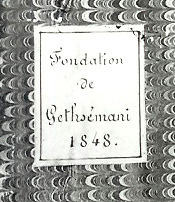 In his address to Congress on September 24, Pope Francis gave special recognition to four individuals who “shaped fundamental values which will endure forever in the spirit of the American people.” One was the Cistercian monk Thomas Merton, “a man of prayer, a thinker who challenged the certitudes of his time and opened new horizons for souls and for the Church.”
In his address to Congress on September 24, Pope Francis gave special recognition to four individuals who “shaped fundamental values which will endure forever in the spirit of the American people.” One was the Cistercian monk Thomas Merton, “a man of prayer, a thinker who challenged the certitudes of his time and opened new horizons for souls and for the Church.”









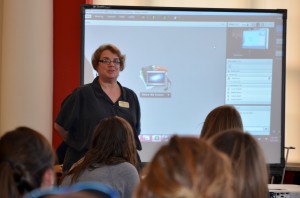 Western Kentucky Reading Council, and the College of Educational and Behavioral Sciences partnered to celebrate International Literacy Day on Thursday, September 17 from 3-4:30pm. WKU students, faculty, and staff gave short stories, legends, myths, and true events of various international perspectives, including Library Professor H
Western Kentucky Reading Council, and the College of Educational and Behavioral Sciences partnered to celebrate International Literacy Day on Thursday, September 17 from 3-4:30pm. WKU students, faculty, and staff gave short stories, legends, myths, and true events of various international perspectives, including Library Professor H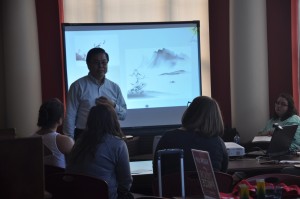 aiwang Yuan and ERC Coordinator and library faculty member Roxanne Spencer. Dr. Margaret Gichuru ended the afternoon talking to a large group of students about South Africa and the literacy efforts being made there.
aiwang Yuan and ERC Coordinator and library faculty member Roxanne Spencer. Dr. Margaret Gichuru ended the afternoon talking to a large group of students about South Africa and the literacy efforts being made there.